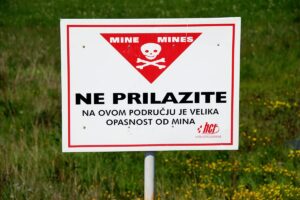The six economies of the Western Balkans must collectively invest at least USD 37 billion over the next decade to safeguard against the escalating impacts of climate change, according to the World Bank Group’s recent Western Balkans regional Country Climate and Development Report (CCDR).
The report underscores that proactive climate action in Albania, Bosnia and Herzegovina, Kosovo*, Montenegro, North Macedonia, and Serbia is crucial. These investments would not only prevent loss of life, property damage, and productivity declines but also accelerate economic growth in the region.
This significant investment is deemed essential to protect people and property from the increasing threats posed by climate change
The World Bank Group’s Country Climate and Development Reports are innovative diagnostic tools designed to integrate climate change considerations with development strategies. These reports provide concrete, prioritized actions to support a low-carbon and resilient transition, aiming to inform governments, citizens, and the private sector.

In the past decade, floods have affected two million people in the Western Balkans, with the severity of impacts expected to worsen due to more extreme rainfall events. Wildfires, which have increased by 21% over the past decade with over 1,500 incidents recorded in 2021, and droughts, negatively affecting agricultural production, are also growing threats.
According to the World Bank, investment in climate change adaptation, especially in low- and middle-income economies, yields significant returns—approximately USD 4 in benefits for every USD 1 invested.
“Climate change poses a clear threat to economic development in the Western Balkans,” said Xiaoqing Yu, World Bank Country Director for the region. “The costs of investing in adaptation are significant. But the good news is that the benefits are even higher. By preparing for climate hazards, we can save lives, safeguard local communities, and stimulate economic growth.”
The Western Balkans CCDR outlines several policy recommendations to guide the region’s transition to climate neutrality by 2050. These recommendations are organized into three categories:
Transversal Policies
These involve integrating adaptation and mitigation efforts across institutions for effective climate action. Suggestions include creating specialized climate-focused agencies or commissions and ensuring national climate change commitments serve in an advisory capacity on all related issues.
Transboundary Policies
This category emphasizes the importance of cross-border collaboration, advocating for stronger regional institutions to coordinate early warning systems, shared resource management, and harmonized energy systems.
Targeted Policies
Addressing the specific needs of vulnerable communities, these policies include education and training reforms to enhance labor mobility and the adoption of climate-smart practices.
As the Western Balkans confronts the dual challenges of economic development and climate change, the CCDR’s recommendations provide a roadmap for achieving a sustainable and resilient future.







